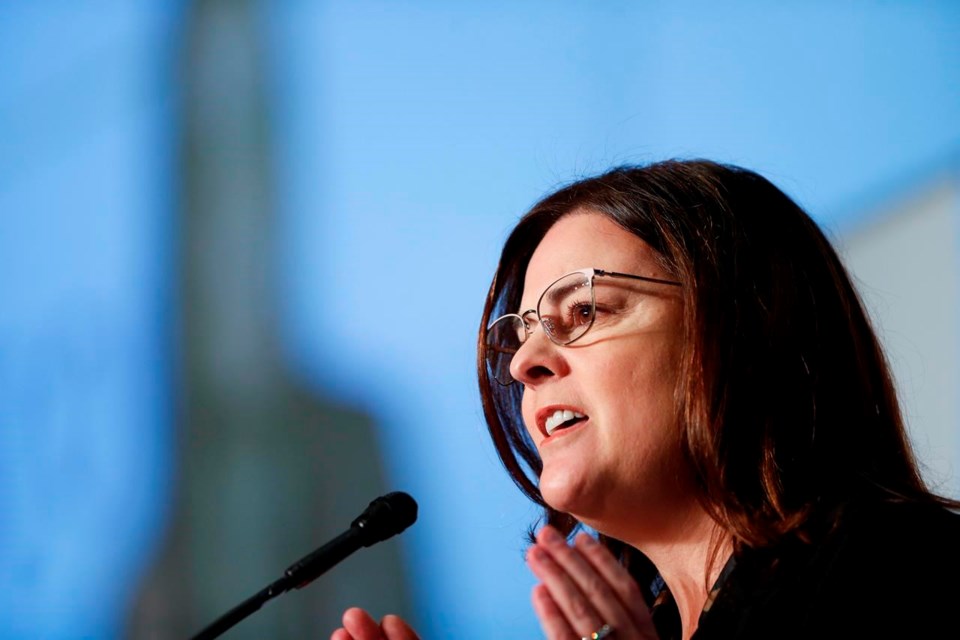WINNIPEG — The Manitoba government announced an end to a seven-year freeze on its unconditional grants to municipalities Friday, addressing a long-standing complaint from civic leaders ahead of a provincial election.
The baseline operating grants are to rise this year by an average of 28 per cent at a cost of $47 million to the province.
"We recognize municipalities and communities across our province are facing significant pressures that impact their ability to deliver important projects and services," Premier Heather Stefanson said.
The increase in the baseline grant, which does not include special funding for infrastructure projects and other items, will vary by municipality.
Winnipeg will see its grant increase by 14 per cent and Brandon’s funding will grow by 39 per cent. Winnipeg will also get a special one-time transit grant of $13 million.
Municipalities with fewer than 5,000 residents and northern communities will see larger increases in their baseline funding — more than 50 per cent in many cases — to reflect the higher cost of providing services in sparsely populated areas, Stefanson said.
The money was welcomed by municipal leaders, even if it was not as much as some were seeking.
"Is the dollar number the one we were hoping for or looking for? Probably not," said Jeff Browaty, a Winnipeg city councillor.
"But again, there's still other stuff I think to come."
The Association of Manitoba Municipalities welcomed the extra funding for smaller and northern communities, which consists partly of a flat $25,000 funding increase not available to more urban areas.
"You have a lot of municipalities that are covering a massive span of miles and a very, very low population base," said Kam Blight, president of the Association of Manitoba Municipalities.
Stefanson also announced Friday that the provincial budget is to be delivered March 7, and it will contain more new spending including more income supports to help people with the rising cost of living. The government recently issued cheques of up to $375 for people with net family incomes of less than $175,000.
"You'll see more relief coming forward in the next budget," the premier said.
The Progressive Conservative government has been making several spending announcements in recent weeks as it faces a provincial election scheduled for Oct. 3. The Tories have been trailing the Opposition New Democrats in opinion polls for more than two years.
The freeze on municipal funding was enacted in 2016 as part of then-premier Brian Pallister's drive to balance the budget. Manitoba has run deficits almost every year since 2009.
"Our government does realize that 2016 numbers don't go as far as they used to," Municipal Relations Minister Andrew Smith said.
The Opposition New Democrats said Winnipeg is being shortchanged compared to other municipalities, and accused the Tories of backpedalling.
“Brian Pallister and Heather Stefanson froze municipal funding for seven years,” said Lisa Naylor, NDP municipal relations critic.
"Election-year promises can’t cover up their failures."
This report by The Canadian Press was first published Feb. 24, 2023.
Steve Lambert, The Canadian Press


